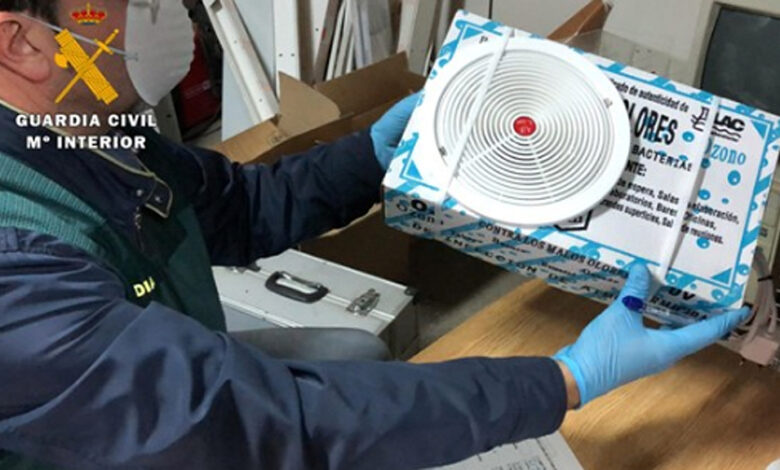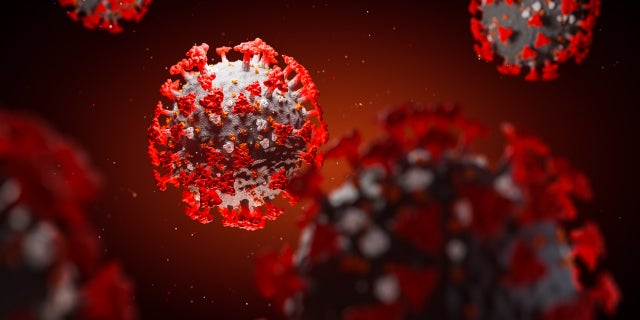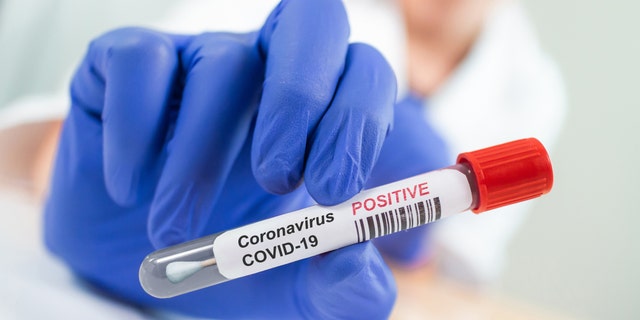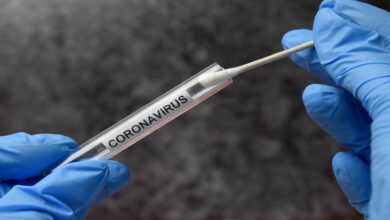COVID-19 hospital airborne transmission prevented by air filters, study suggests

[ad_1]
COVID-19 particles can be effectively filtered from the air to prevent transmission in the hospital using portable air filters and ultraviolet (UV) light sterilization technology, according to a recent study.
Nature recently reported the study, which is currently not peer reviewed, to be the first to demonstrate how portable high-efficiency particulate air (HEPA) filters can reduce hospital transmission of detectable airborne COVID-19 virus in a real-world health care setting. The research is currently reported in the preprint server MedRxiv.

There are still unanswered questions regarding the variant, a scientist said.
(iStock)
COVID-19: WHAT IS THE DELTA PULUS VARIANT?
The researchers noticed during the pandemic hospital surges many COVID-19 patients were in health care settings without the proper capacity for high frequency air-exchanges, noting the previous experiments only studied the ability to filter air, removing inactive particles in controlled environments, but never in the real-world setting.
Lead intensivist Dr. Andrew Conway Morris, Clinician Scientist in Intensive Care Medicine at University of Cambridge, wrote to Fox News: “Before we undertook this study we knew HEPA filters could take out small particles, but we didn’t know if this would work in the real-life environment of a COVID-19 ward with portable filters.”
From a three week period between January to February earlier this year when the hospital units surged to maximum capacity, they repurposed two COVID-19 hospital units into a general ward and an intensive care unit (ICU).
HEPA filters were installed in fixed locations in these two settings, capitalizing on their ability to remove smaller particles that hospital personal protective gear can sometimes miss.
They collected and compared the samples from the air when the HEPA filters were turned off, the second week when they were on, and the last week when they were off again.

The novel coronavirus was more than twice as contagious at the start of the pandemic than first thought, according to a new study from Duke University.
(iStock)
PFIZER SAYS ITS COVID-19 VACCINE MORE THAN 90% EFFECTIVE IN KIDS
However, when Morris “saw the data we were stunned [with the] complete removal of SARS-CoV-2 from the atmosphere of the ward tested.”
COVID-19 medium to large size particles were in the ward air before the air filtration system started, but they could not be detected after the HEPA filtration system was turned on.
The study was most interested in measuring medium to large particles because smaller particles are least likely to be generated by patients and not clinically relevant.
There was limited evidence of COVID-19 virus particles in the intensive care unit even at baseline and only one COVID-19 medium sized air sample was positive after the filtration system was turned on.
He added, “It was also notable how little SARS-CoV-2 we found in the air in ICU, where of course we all wear the highest level protection.”
CLICK HERE TO GET FOX NEWS ON THE GO
The study suggests it might be more important to filter COVID-19 from the air in the wards than in the intensive care unit, as fewer COVID-19 particles were in the ICU at baseline, because of more aerosol protection from PPE in the ICU and there’s less viral replication at later stages of disease in unit patients.
The study has several limitations: it was conducted for only three weeks in two rooms during a worldwide pandemic without any defined data of the optimal air exchanges required to remove viruses. In addition, because there was a large volume of air within the two rooms studied and because of how stable the viruses were in the samples, the authors note they couldn’t really state there was actually circulating COVID-19 virus.
Regardless, Morris writes, “Overall I think this study has important implications for infection control, we need urgent studies to confirm that air filtration reduces hospital-acquired infection but from what we’ve found that looks likely to be the case.”
[ad_2]
Source link






